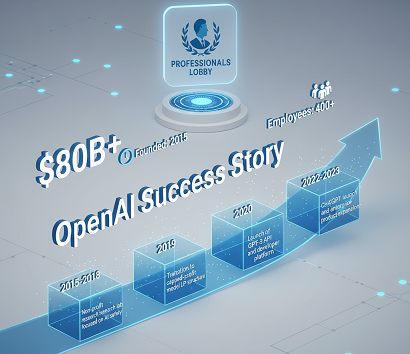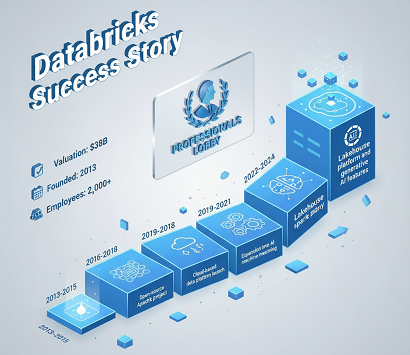Artificial Intelligence is not just transforming existing businesses—it's creating entirely new entrepreneurial opportunities that were unimaginable a decade ago. From AI-first startups to AI-enabled traditional businesses, the entrepreneurial landscape is undergoing a fundamental shift.
This comprehensive guide explores how AI is revolutionizing entrepreneurship, the most promising business opportunities, and practical strategies for launching successful AI ventures in today's competitive market.
Quick Navigation
Revolutionary AI Business Models
AI is enabling entirely new business models that leverage machine intelligence as a core competitive advantage. Here are the most impactful AI business models shaping today's entrepreneurial landscape:
AI-as-a-Service (AIaaS)
Providing AI capabilities through cloud-based APIs and platforms, enabling businesses to integrate AI without building in-house expertise.
Examples:
- OpenAI API
- Google Cloud AI
- Azure Cognitive Services
Vertical AI Solutions
AI solutions tailored to specific industries like healthcare, finance, or retail, solving domain-specific problems with deep expertise.
Examples:
- PathAI (Healthcare)
- Kensho (Finance)
- Cortex (Retail)
AI-Enabled Marketplaces
Platforms that use AI to match supply and demand more efficiently, personalize experiences, and optimize transactions.
Examples:
- Upwork AI Matching
- Airbnb Pricing
- Amazon Recommendations
Autonomous Business Processes
Businesses built around fully or partially automated processes that require minimal human intervention.
Examples:
- Automated Customer Service
- AI-Driven Logistics
- Robotic Process Automation
Data-Driven Products
Products that generate value through unique data collection and AI-powered insights unavailable elsewhere.
Examples:
- Weather Forecasting AI
- Financial Prediction Models
- Healthcare Diagnostics
AI-Enhanced Traditional Businesses
Traditional businesses that integrate AI to dramatically improve efficiency, customer experience, or product quality.
Examples:
- AI-Optimized Manufacturing
- Smart Retail
- Predictive Maintenance Services
High-Potential AI Market Opportunities
The AI revolution is creating unprecedented opportunities across virtually every sector. Here are the most promising areas for AI entrepreneurship:
Healthcare & Life Sciences
Medical Diagnostics AI
AI systems that can detect diseases from medical images with higher accuracy than human experts
Drug Discovery Platforms
AI-powered platforms that accelerate pharmaceutical research and reduce development costs
Personalized Medicine
AI systems that tailor treatments and medications to individual genetic profiles
Finance & Fintech
Algorithmic Trading
AI systems that execute trades based on market patterns and predictive analytics
Fraud Detection
Real-time AI systems that identify and prevent financial fraud with high accuracy
AI-Powered Lending
Credit assessment and loan approval systems using alternative data and machine learning
Education & EdTech
Adaptive Learning Platforms
AI systems that personalize educational content based on individual learning patterns
Automated Assessment
AI tools that evaluate student work and provide instant, personalized feedback
Corporate Training AI
AI-powered systems for employee skill development and performance improvement
Retail & E-commerce
Hyper-Personalization
AI systems that create unique shopping experiences for each customer
Predictive Inventory
AI-powered demand forecasting and inventory optimization systems
Visual Search
AI systems that allow customers to search using images instead of text
Key Market Trends Driving AI Entrepreneurship
Cloud AI Democratization
Cloud platforms making advanced AI accessible to startups without massive infrastructure investment
Specialized AI Hardware
AI-specific processors reducing computation costs and enabling new applications
AI Regulation & Standards
Emerging frameworks creating opportunities for compliance and ethical AI solutions
Global Talent Distribution
Remote work enabling AI startups to access global talent pools beyond traditional tech hubs
AI Startup Archetypes & Success Patterns
Successful AI ventures often follow specific patterns and archetypes. Understanding these can help entrepreneurs position their startups for success:
The Platform Play
Characteristics:
- Builds foundational AI infrastructure
- Serves multiple industries
- Strong network effects
- High capital requirements
Success Factors:
- First-mover advantage
- Developer ecosystem
- Scalable architecture
- Strategic partnerships
The Vertical Specialist
Characteristics:
- Deep industry expertise
- Domain-specific data advantage
- Higher margins
- Slower but more defensible
Success Factors:
- Industry partnerships
- Regulatory understanding
- Customized solutions
- Proven ROI
The AI-Enabled Service
Characteristics:
- Human-AI hybrid model
- Service delivery focus
- Progressive automation
- Strong customer relationships
Success Factors:
- Quality control systems
- Scalable processes
- Customer education
- Continuous improvement
The Data Moats
Characteristics:
- Unique data collection
- Self-improving systems
- High barriers to entry
- Long-term advantage
Success Factors:
- Data network effects
- Privacy compliance
- Data quality systems
- Continuous data acquisition
AI Startup Funding Landscape
Top Funded Sectors:
Critical Success Factors for AI Ventures
Building a successful AI business requires more than just technical expertise. Here are the key factors that separate winning AI ventures from the rest:
Data Strategy
Access to unique, high-quality data and systematic approaches to data collection and management
Checklist:
- Proprietary data sources
- Data quality processes
- Scalable data infrastructure
- Privacy compliance systems
Talent Acquisition
Ability to attract and retain AI talent in a highly competitive market
Checklist:
- Cross-functional AI teams
- Continuous learning culture
- Competitive compensation
- Clear career progression
Technical Infrastructure
Robust, scalable technical architecture that can handle AI workloads efficiently
Checklist:
- MLOps practices
- Cloud optimization
- Monitoring systems
- Disaster recovery
Ethical Foundation
Strong ethical frameworks and compliance with evolving AI regulations
Checklist:
- Bias mitigation
- Transparency practices
- Privacy protection
- Accountability systems
Business Model Innovation
Creative approaches to monetization and value capture in AI markets
Checklist:
- Clear value proposition
- Scalable pricing
- Customer success focus
- Partnership strategy
Execution Excellence
Ability to deliver reliable AI solutions that solve real business problems
Checklist:
- Agile development
- Quality assurance
- Customer feedback loops
- Continuous deployment
Professionals Lobby Insight:
"The most successful AI entrepreneurs focus on solving real business problems rather than just building impressive technology. They start with market needs and work backward to the AI solution, not the other way around. In the UAE context, this means understanding local regulatory frameworks, cultural nuances, and specific industry pain points that AI can address."
AI Entrepreneurship Success Stories
Real-world examples of AI ventures that have successfully scaled and created significant value:

OpenAI
Business Model Evolution:
Key Success Factors:
- First-mover advantage in large language models
- Strategic partnership with Microsoft
- Developer-first platform strategy
- Balanced approach to commercialization and safety

Databricks
Business Model Evolution:
Key Success Factors:
- Strong open-source foundation
- Clear enterprise value proposition
- Continuous platform evolution
- Strategic focus on data and AI convergence

Midjourney
Business Model Evolution:
Key Success Factors:
- Unique community-driven approach
- Focus on artistic quality and aesthetics
- Lean team structure
- Viral growth through social sharing
Getting Started with AI Entrepreneurship
The AI revolution represents one of the most significant entrepreneurial opportunities of our generation. Success requires combining technical expertise with business acumen, market insight, and strategic execution.
Next Steps for Aspiring AI Entrepreneurs:
Identify Your Niche
Find a specific problem where AI can create 10x improvement over existing solutions
Validate Market Need
Conduct customer discovery and validate that customers will pay for your solution
Build MVP
Develop a minimum viable product that demonstrates core AI capabilities
Secure Early Adopters
Find initial customers willing to provide feedback and case studies
Scale Strategically
Focus on sustainable growth while maintaining product quality and customer satisfaction
Ready to Launch Your AI Venture?
Our AI entrepreneurship consultants can help you validate your idea, develop your strategy, and connect with the right resources and partners.
Schedule AI Entrepreneurship Consultation


